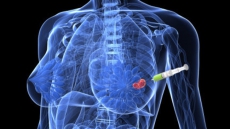In older people, not getting enough vitamin D may double the risk of developing dementia and Alzheimer's disease, says a study.
The study looked at vitamin D levels in the blood, which includes vitamin D from food, supplements and sun exposure.
Dietary vitamin D is found in fatty fish such as salmon, tuna or mackerel and milk, eggs and cheese.
"We expected to find an association between low Vitamin D levels and the risk of dementia and Alzheimer's disease, but the results were surprising - we actually found that the association was twice as strong as we anticipated," said David Llewellyn from University of Exeter Medical School in Britain.
For the study, 1,658 people over the age of 65 who were dementia-free had their vitamin D blood levels tested.
After an average of six years, 171 participants developed dementia and 102 had Alzheimer's disease.
The study found that people with low levels of vitamin D had a 53 percent increased risk of developing dementia and those who were severely deficient had a 125 percent increased risk compared to participants with normal levels of vitamin D.
People with lower levels of vitamin D were nearly 70 percent more likely to develop Alzheimer's disease and those who had severe deficiency were over 120 percent more likely to develop the disease.
The study appeared in the journal Neurology.





